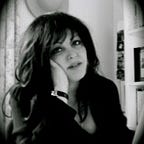Why Should You Read Literature? Perhaps You Should Not.
“You ask me again, why you should read literature. I feel I should not answer you…Why ask me? I did not choose your course of study. You could have taken sociology, physics, or architecture. You have circumscribed your own world, for the coming semester at least. There is no point to the question if you yourself cannot answer it. Why should you read literature?
Perhaps you should not.
However, I suspect you feel you would like to, and that is the basis of your irritation with silly men, mousy women, tea, religion, and quotations, in the novel. Is this worthy of the august company of Dante, Proust, Dostoyevsky?
It may interest you to know that Barbara Pym felt as you do, when she was about your age — reading Aldous Huxley, and imagining herself in a more glittering, a more significant, world. And so to protect herself from an unbearable exclusion from that world, she wrote a novel, Young Men in Fancy Dress, in hope, her biographer says, of becoming part of it.
Her irritation with silly men was no different from yours, or mine, or anyone’s really, you see. The only difference is what each of us regards as ‘silly.’ Literature, or at least, books (I will not presume to add Pym to the Masters, as you call them — although surely there are degrees of literature) offer a way out — out of a time, a space, a life, a status, a level of experience that is unsatisfactory to the reader. Not by virtue of escape, but by metamorphosis, via instruction…And although you may not now want to arrive in such a place, you have chosen it as your destination. But I suppose you must. After all, it does not make sense that you should have chosen to enter a fictional world you find irritating.
Oh ― but see what Miss Pym’s Huxley had to say in Those Barren Leaves:’ If we wrote it ourselves, we might find Etruscan literature interesting.’
Does it have to be your world, Felicity, in order to be habitable, respected, interesting, relevant? ‘It’s so provincial,’ you complained to me of Some Tame Gazelle in your first letter.
But you see… Provincialism does not signify in a writer, and may indeed be the chief source of his strength: only a fool or a prig would complain that Defoe is cockneyfied or Thomas Hardy countrified. But provincialism in a critic is a serious fault. A critic has no right to the narrowness which is the frequent prerogative of the creative artist. He has to have a wide outlook, or he has nothing at all…
I am sorry to keep quoting things at you so seemingly malevolently, but this is what literature does to one after many years — it incorporates, enfolds, enriches one mind with another. Quite a beautiful thing — and very old-fashioned now I’m afraid, except in the most exacting circles among which are such universities as those by which you were privileged to be courted. (That was E. M. Forster, by the way, Aspects of the Novel, which, I am sure, someone else will insist that you read. If not, I do.)”
